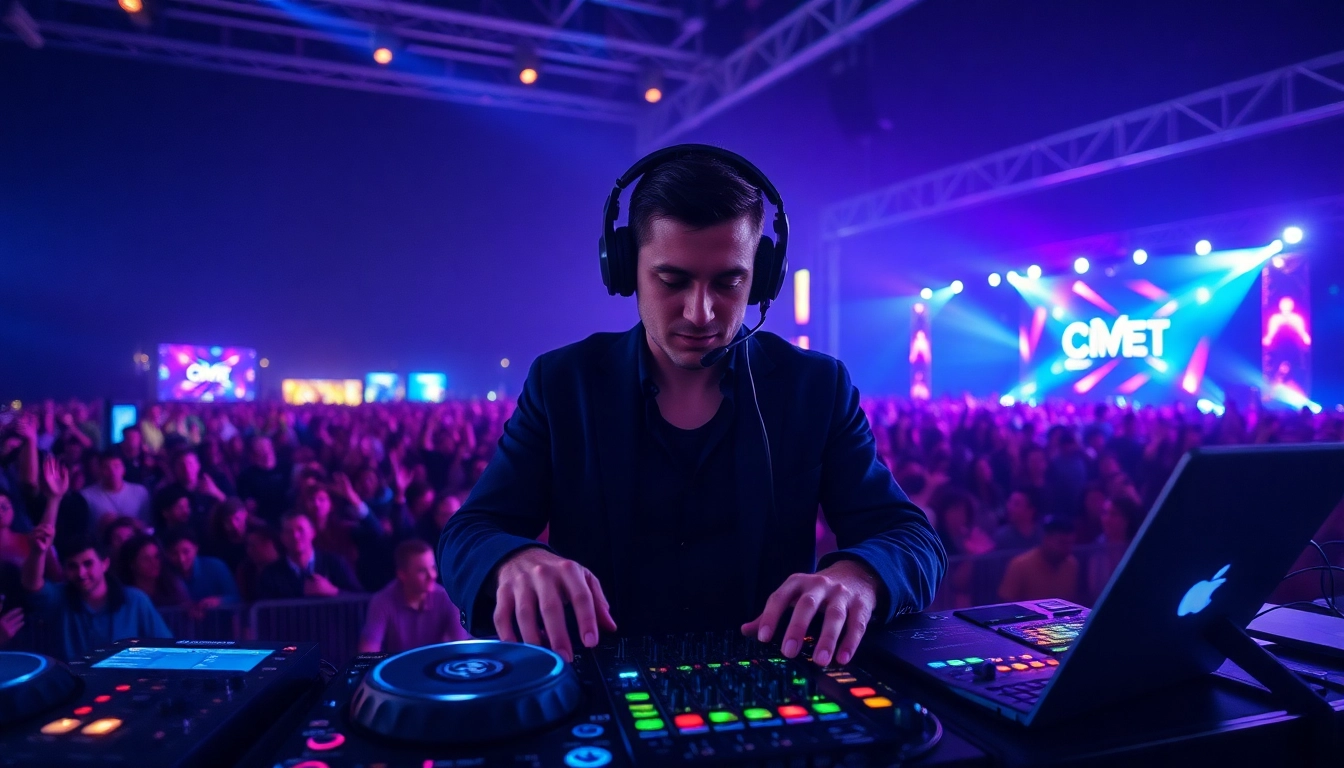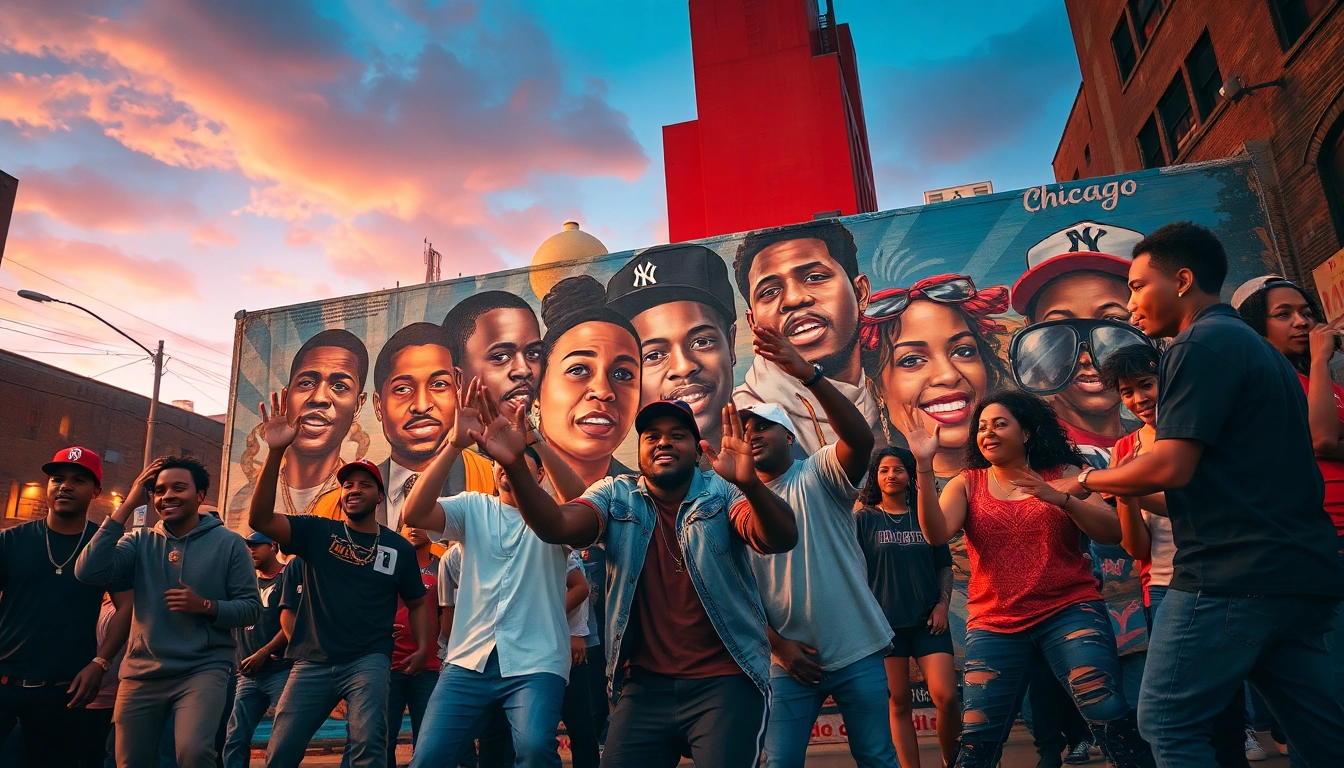Understanding DJ Music
DJ music is a dynamic, evolving genre that transcends traditional music boundaries, serving as a bridge between diverse styles, cultures, and audiences. Whether it’s pumping basslines that get crowds moving or soft mixes that create intimate atmospheres, understanding the essence of dj music is crucial for both novices and seasoned DJs alike. This article dives deep into the nuances of DJ music, exploring its evolution, the genres that shape it, essential skills for aspiring DJs, the tools of the trade, and tips for creating compelling mixes.
What is DJ Music?
DJs, or disc jockeys, curate and manipulate recorded music for various settings, including clubs, radio shows, and festivals. DJ music isn’t merely about playing a series of tracks; it’s an art form that involves selecting, mixing, and presenting music in ways that create emotional responses and energize audiences. This unique discipline has birthed a variety of musical sub-genres and styles, each offering a distinct sound and vibe.
Evolution of DJ Music Over the Years
The roots of DJ music can be traced back to the early 20th century, where recorded music became prevalent, allowing individuals to curate musical experiences. However, it was the advent of electronic music in the late 1970s and 80s that truly transformed DJ culture. From the disco era that pioneered the use of turntables to the rise of hip hop in the 1980s, the role of the DJ evolved, becoming a cultural icon and influential music producer.
As technology advanced, so too did DJ music. The introduction of digital audio workstations (DAWs) and software allowed DJs to experiment with sounds and create seamless mixes that were once thought impossible. The late 1990s and into the 2000s saw the explosion of electronic dance music (EDM), giving rise to huge festivals and a global DJ community.
The Role of Technology in DJ Music
Technology has revolutionized DJ music, influencing both the creation and consumption of music. Today, DJs utilize a variety of software and hardware tools, including laptops, MIDI controllers, and digital mixers, which enhance their ability to create unique blends of sound. Digital platforms have also democratized music sharing, enabling DJs to showcase their mixes globally through social media and music streaming services, thus connecting them with larger audiences than ever before.
Popular Genres of DJ Music
DJ music encompasses a myriad of genres, each with its distinct features, cultural significance, and fan base. Understanding these genres is essential for any aspiring DJ looking to curate a diverse set of playlists.
House Music: The Heart of DJ Culture
Emerging in the 1980s from Chicago, house music is characterized by its repetitive 4/4 beats, synthesizer melodies, and soulful vocals. This genre laid the groundwork for modern DJ culture, inspiring countless artists and shaping the landscape of electronic music. House music’s global appeal can be attributed to sub-genres such as deep house, tech house, and progressive house, each introducing unique elements while maintaining the core essence of the style.
EDM and Its Global Surge
Electronic Dance Music (EDM) has become a colossal force in the music industry, encompassing various styles like trance, dubstep, and electro house. The explosive growth of electronic music festivals worldwide has created a platform for DJs to perform to thousands, showcasing their creativity and skill. This genre continues to evolve, pushing boundaries and attracting new followers at an unprecedented rate.
Exploring Hip Hop and Its Influence on DJ Music
Hip hop is an integral part of the DJ music landscape, blending storytelling with grooves that resonate deeply with audiences. DJs play a pivotal role in hip hop culture, often serving as producers, remixers, and live performers. The art of sampling—taking a piece of existing music and recontextualizing it into a new creation—has allowed hip hop DJs to craft innovative sounds deeply rooted in the history of music.
Essential Skills for Aspiring DJs
For those looking to step into the world of DJing, mastering a unique set of skills is crucial. These abilities not only enhance performance but also foster creativity and connection with audiences.
Mixing Techniques and Beat Matching
At the heart of effective DJing lies the art of mixing and beat matching. DJs must learn to synchronize beats from two or more tracks to achieve a seamless blend. Various techniques, such as using EQ settings, filters, and effects, can enhance the mixing process, allowing for smooth transitions that keep the energy flowing. Mastery of tempo adjustment and phrasing ensures that beats align perfectly, creating a cohesive musical experience.
Understanding Music Theory for DJs
A solid grasp of music theory can significantly elevate a DJ’s performance. Understanding elements like chord progressions, keys, and timing helps DJs make informed decisions when selecting tracks and crafting mixes. This knowledge allows for deeper emotional engagement with the audience and a more dynamic performance.
Live Performance Tips for DJ Music
Engaging with an audience is essential for successful live performances. DJs should focus on reading the crowd, adjusting their sets accordingly, and delivering an energetic performance that resonates with attendees. Incorporating live elements, such as using drum machines or synthesizers, can enhance the experience, allowing for spontaneous creativity. Moreover, building a strong presence on stage—using gestures, eye contact, and energy—can create a memorable interaction with the audience.
Tools and Equipment for the Best DJ Music Experience
The tools of the trade are fundamental to a DJ’s capabilities. Understanding the equipment available is essential for creating high-quality mixes and performances.
Must-Have DJ Gear: From Turntables to Software
Regardless of the genre you intend to explore, certain equipment is essential for any DJ. Traditional turntables remain beloved for their tactile experience and rich history, while digital controllers and software have revolutionized mixing capabilities. Recognizing the pros and cons of each tool is crucial when selecting gear that fits your style. Whether you prefer the nostalgia of vinyl or the efficiency of digital formats, investing in quality gear will enhance your performances.
Choosing the Right Sound System for Your Setup
The sound system you choose significantly impacts how your mixes are perceived. Selecting high-quality speakers and mixers ensures clarity and power, allowing dance tracks to resonate deeply. Understanding factors such as venue size, acoustics, and desired sound pressure levels empowers DJs to choose appropriate equipment that captivates the audience.
Affordable DJ Equipment for Beginners
Diving into DJing doesn’t have to break the bank. Numerous affordable options exist for beginners, ranging from entry-level controllers to budget-friendly software. Leveraging online resources for gear reviews and tutorials can help make informed purchasing decisions, ensuring that newcomers can start their journey without overwhelming investment.
Creating Your Own DJ Music Mix
Creating an engaging DJ mix requires not only skill but creativity and passion. This section outlines the steps necessary for crafting your unique sound.
Finding the Right Tracks and Samples
The foundation of any great mix lies in selecting the right tracks. DJs need to explore various music sources, including digital libraries, record shops, and online platforms. Understanding audience preferences can inform track selection, while experimenting with lesser-known songs can offer fresh takes that surprise and delight listeners. Samples can also play a crucial role: pulling elements from diverse genres can enrich the mix and add unique character.
Using DJ Software for Mix Creation
DJ software serves as a powerful tool in the MixCreation arsenal. Programs often offer user-friendly interfaces, allowing DJs to arrange tracks easily, apply effects, and record performances. Learning to navigate these tools effectively can vastly improve your mixing capabilities and allow for creative exploration. From basic functionality to advanced features, DJ software enables an extensive range of possibilities in both live performances and studio work.
Promoting Your DJ Mix Online
Promotion is key to gaining traction in the competitive DJ landscape. Leveraging social media platforms, music-sharing sites, and personal websites allows DJs to distribute their mixes to broader audiences. Engaging with listeners through interaction, feedback, and collaborations fosters a sense of community and can lead to new opportunities. Regularly updating content and maintaining visibility can keep your brand relevant and appealing.



